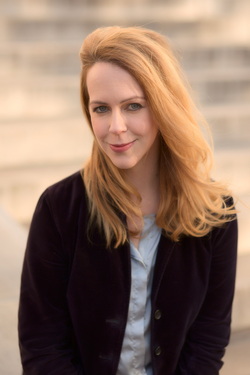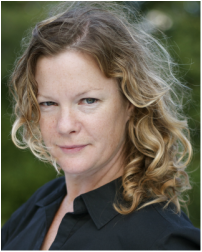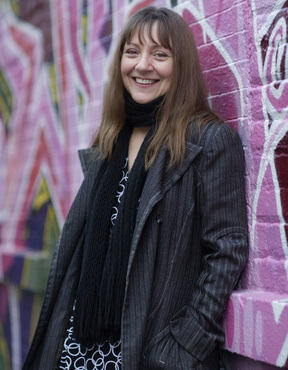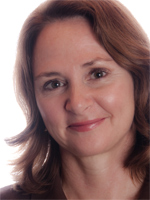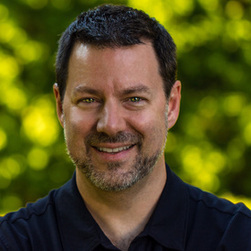
For me this is an actor’s dream. Multiple characters, wonderful words to say, physical comedy, smooching, wigs, and even dramatic and dark moments to play. There is also a real sense of style to the show, so it was a challenge to be specific vocally and physically. But the real fun has been to just let loose and throw myself around the stage for a door slamming farce. Not to mention working with two amazing actresses.
What is your favorite line in the play?
My favorite line is Lady Davenant’s. “Only don’t be late, musn’t keep actors waiting around without the play, they’ll start to drink, and then it’s quarrels, and misbehaving behind the scenery, and asking to go home early, never leave actors with nothing to do.” I don’t think I need to explain why I like the line, do I?
Why should someone come to see this show?
The show invites you into the world of three important historical figures that have had impact on the world of theatre and how it has survived and evolved. Aphra Behn, the first professional female playwright. Nell Gwynne, one of the first female actresses. And Charles II, the king who allowed the arts to enter a dynamic period of growth and freedom. Plus, it’s hysterical, sexy, and poetic! But mostly everyone should come to the show because they will get to see me in a dress. With a bosom the size of Camel’s Hump.
What characters are you playing?
I play three characters. Charles II, the King of England. He was known as the “Merry Monarch” for his many mistresses. He had 12 acknowledged illegitimate children! Despite his philandering, he was also a great king; politically savvy and enlightened enough to have allowed theatre and the arts to thrive after the puritanical stifling of England during Cromwell’s tenure. In our play, he is playful and randy, even a touch vulnerable when he is alone with Aphra. He basically kisses everyone he can get his hands on: women, men, actors, whores, writers. I imagine he would kiss the ushers if he could break the fourth wall.
My second character is William Scot. He was a disgraced noble and ex-spy, living in exile. He is an ex-lover of Aphra’s who has come to ask for her help. He is on the run and desperate. Certainly an alcoholic, probably still in love with Aphra.
Finally, I play Lady Davenant, a theatrical producer. She is extremely verbose and knows exactly what she wants. She surprises Aphra with an offer she can’t refuse. Her deceased husband ran one of only two theatres allowed in London at the time. But I suspect Lady D, as we like to call her, also ran her husband.
How have you been preparing to take on this role?
Playing three roles requires three different mindsets, circumstances and intentions. Each character must be unique physically and vocally. Each character needs to be energetically different. The challenge comes from switching from one to the other, sometimes very quickly. I change character ten times!
Since these were all real people, I’ve done research on what history tells us about them. Which is helpful in creating characters. But ultimately I just needed to make bold choices that I connect to and that are relatable to the audience. I’ve also been doing a lot of lip calisthenics for the kissing in the show.

